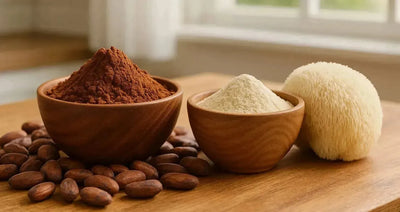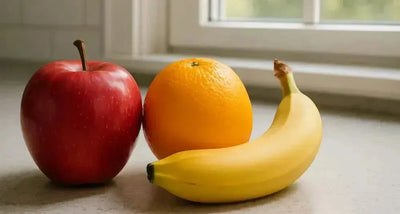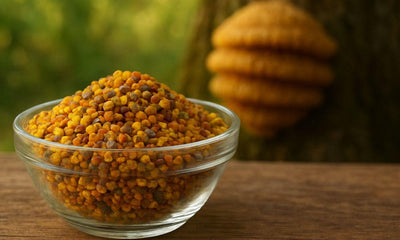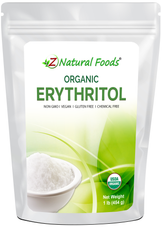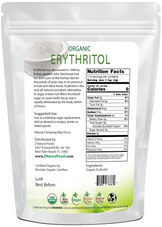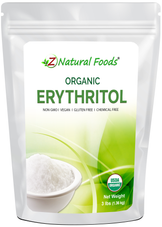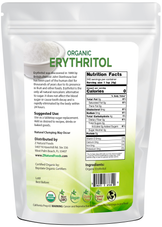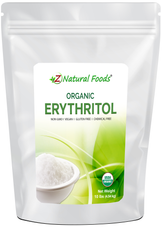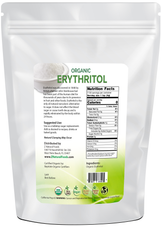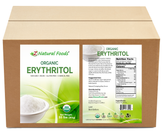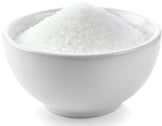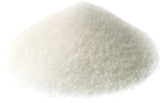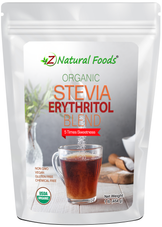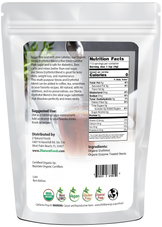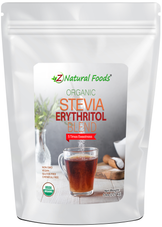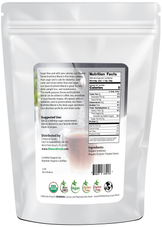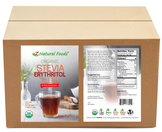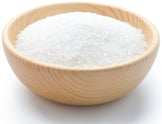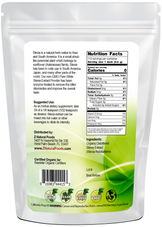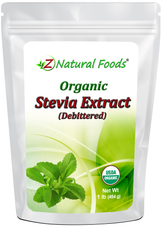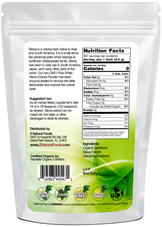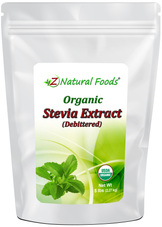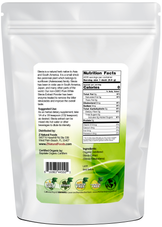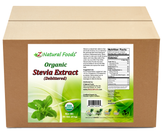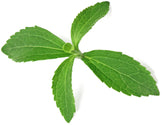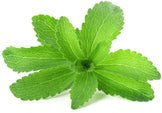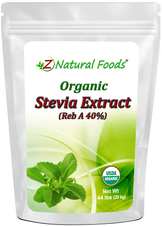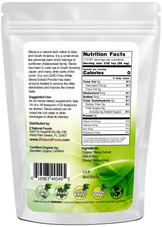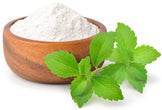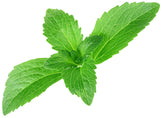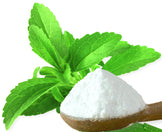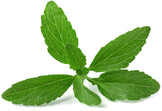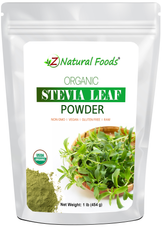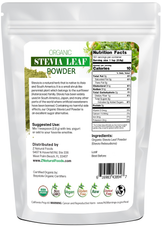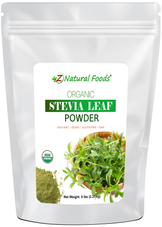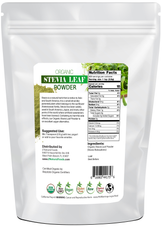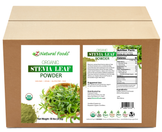Description
Description
Have you ever wondered if stevia is better than sugar?
If you have, this article is for you.
Stevia is better than sugar because it does not impact blood glucose levels the same way sugar does. Stevia also does not contain calories, which may support a healthy weight.
Our team researched and explored some of the main reasons stevia differs from sugar.
Let’s dig in and discover what we found.
Is Stevia Healthy or Not?
Yes, stevia is a healthy sugar substitute, especially when compared to artificial sweeteners like saccharin, sucralose, and aspartame.
Over the last few decades, stevia has become popular as a plant-based, calorie-free alternative to sugar.
Stevia is a plant native to South America that has been used as a sweetener for hundreds of years. The stevia plant is part of the Chrysanthemum family, related to the daisy and ragweed.
Like other no-calorie sweeteners, stevia is incredibly sweet, with an intensity 200 times sweeter than normal table sugar. As a result of its sweetness, the stevia plant has earned the name "Kaa Hee” (“Sweet Herb”) in Paraguay [1].
The Guarani, a group of culturally related indigenous peoples of South America, knew the leaves of the wild stevia shrub held a sweetening potency unlike anything else. Since ancient times, they've been sweetening foods, beverages, and medicinal potions.
Some of the main benefits of using stevia instead of sugar include:
1. Stevia may help with weight management
Stevia is a nonnutritive sweetener, which means it’s essentially calorie and carb-free. This is excellent news if you’re trying to lose weight and having difficulty drinking tea or coffee with no sugar.
The sweet-tasting components of stevia are called steviol glycosides, of which rebaudioside A (Reb-A) and stevioside are the most abundant. These glycosides are responsible for the sweetness and consequently do not contribute to calories or impact blood glucose levels [1, 2].
So, will substituting stevia for sugar in your foods and beverages lead to weight loss? Because there are no calories in stevia and no impact on blood glucose levels, using stevia instead of sugar may support a healthy weight.
2. Stevia has a glycemic index of zero
Sugar, on the other hand, has a medium glycemic index of 65 – with 100 being the highest [3]. As such, stevia is a great sugar alternative if you’re concerned about blood glucose levels. Unlike artificial sweeteners and sugar, stevia may increase glucose tolerance and may help stabilize blood sugar levels. Therefore, stevia may be a safe alternative if you have type 2 diabetes and need an alternative to sugar.
That said, you must consult your doctor before using any sugar substitutes, including stevia. Some stevia products in the market may also contain other sweeteners, including sugar or sugar alcohols, making them unsafe if you are at-risk or have diabetes [3].
3. Stevia leaf powder may help manage cholesterol
Stevia has been found to possibly lower LDL (“bad”) cholesterol levels in the body, and there may be no adverse side effects. Furthermore, it's possible that stevia can support healthy levels of good cholesterol. For these reasons, it's possible that stevia may be associated with reduced heart disease risk.
It’s worth noting that in a 2017 study published in the journal Studies on Ethno-Medicine, a group of women who had high cholesterol revealed that consuming stevia extract significantly reduced cholesterol levels, triglyceride, and LDL-C while an increase in HDL-C was noted, which is desirable. The participants consumed 20 ml of stevia extract daily for one month straight [4].

Dark Chocolate Chip Cookie Dough Smoothie with Organic Stevia (100% Vegan & Totally Delicious):
Ingredients:
For Smoothie:
- 2 Frozen Bananas
- 1/4 cup Organic Cashew Milk Powder
- 1/4 cup Organic Bittersweet Chocolate Chips
- 2 tbsp Organic Rolled Oats
- 1 tsp Vanilla Extract Flavor
- 1/8 tsp Himalayan Salt
- 1 cup Cold Water or Ice
For Cookie Dough:
- 1 cup Organic Raw Almonds (grind almond to become flour)
- 1/2 cup Organic Raw Whole Cashews (make cashew butter in food processor)
- 1 tsp Himalayan Salt
- 1/4 tsp Organic Stevia Extract (Debittered)
- 1/4 tsp Organic Bittersweet Chocolate Chips
Directions:
- In a medium size bowl, add almond flour, cashew butter, stevia, salt, and mix well. Stir in chocolate chips and make cookie dough.
- In a blender, add half of cookie dough and smoothie ingredients, blend until smooth and creamy.
- Pour smoothie into a glass, sprinkle remaining cookie dough and chocolate chips on top.
- Ready to drink. Enjoy!
Is stevia safe to use every day?
Yes, stevia is safe to use every day. The purest organic form is the safest because it does not contain artificial sweeteners, natural flavors, added colors, or artificial additives.
A leading researcher and professor of nutrition at the Harvard T.H. Chan School of Public Health, Dr. Frank Hu, says that the effects of sugar can result in higher blood pressure, inflammation, weight gain, diabetes, and fatty liver disease.
He also says that all these diseases are linked to increased heart attack and stroke risk.
Alternatively, artificial sweeteners are an option for many, but they might also have some possible risks. Animal studies have shown that artificial sweeteners cause weight gain, brain tumors, and many other health hazards. Scientists have reported mixed results on the safety of artificial sweeteners.
So, is stevia a healthier alternative to sugar and artificial sweeteners?
Compared to all these awful-sounding side effects, stevia sure sounds a lot safer.
If you are not sure exactly what is the best form of stevia for you, it may be best to look for pure Organic Stevia Leaf Powder, Organic Stevia Extract powder (Debittered) (Most popular), or Organic Stevia Erythritol Blend.
If you are looking to use Reb-A in a bulk application, please also review our Organic Stevia Extract Powder (Reb A 40%).
The Bottom Line
Stevia is better than sugar. It’s sweeter than sugar, meaning you’ll only need a little of it. It doesn’t impact blood glucose levels, and it can be used to aid weight loss programs.
The only downside is taste, as it may leave a bitter aftertaste. The aftertaste is not unpleasant for most people and has been described as similar to black licorice. If the sweet bitterness of stevia is a turnoff for you, be sure to use our organic debittered stevia extract.
References
- Goyal, S. K., Samsher, and R. K. Goyal. "Stevia (Stevia rebaudiana) a bio-sweetener: a review." International journal of food sciences and nutrition 61 (2010): 1-10.
- Gupta, Ena, et al. "Nutritional and therapeutic values of Stevia rebaudiana: A review." Journal of Medicinal Plants Research 7.46 (2013): 3343-3353.
- Masoumi, Seyed Jalil, Sara Ranjbar, and Vida Keshavarz. "The effectiveness of stevia in diabetes mellitus: A review." International Journal of Nutrition Sciences 5.2 (2020): 45-49.
- Sharma, N., R. Mogra, and B. Upadhyay. "Effect of stevia extract intervention on lipid profile." Studies on Ethno-Medicine 3.2 (2009): 137-140.
